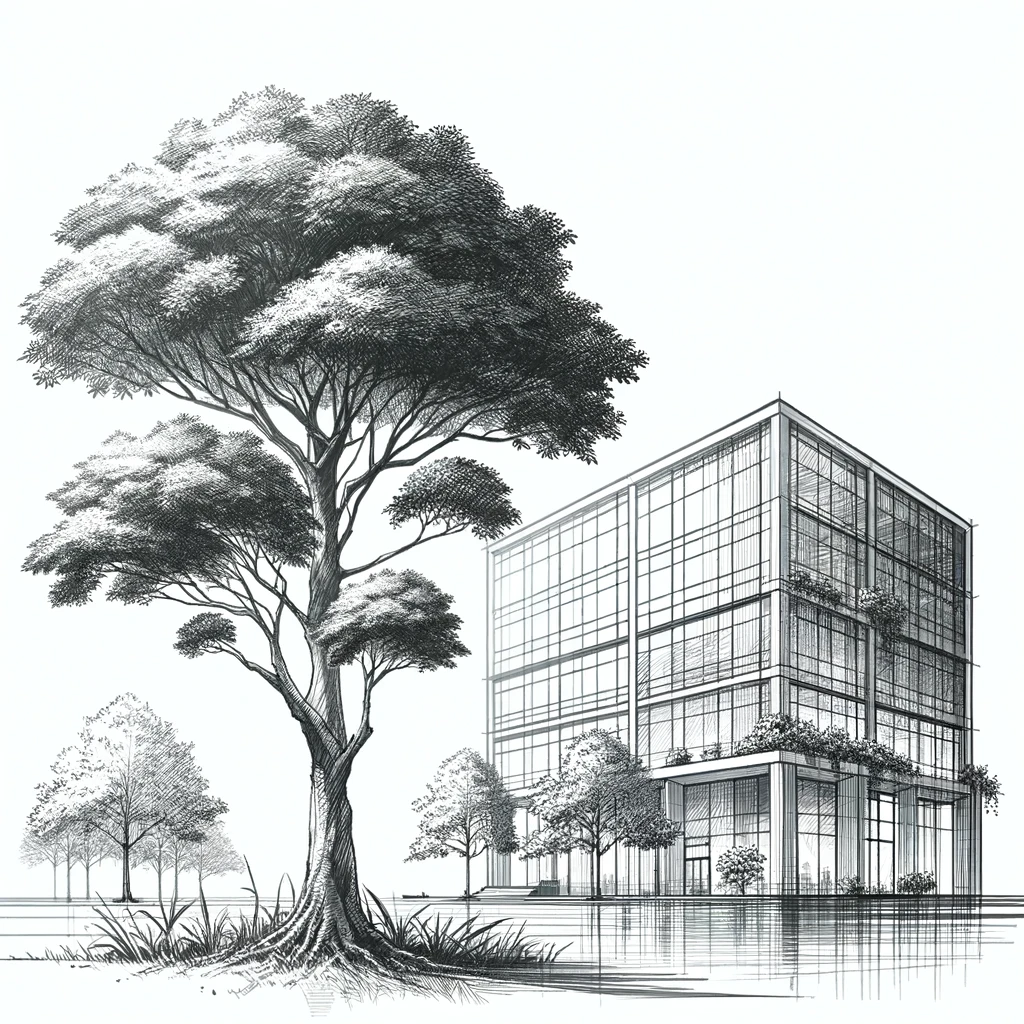Navigating the Path to Sustainability: The Difference Between Energy Efficiency and Decarbonization
November 7, 2023

In today's rapidly changing world, the construction industry is undergoing a profound transformation. Building owners, designers, and engineers are increasingly aware of their role in reducing the environmental impact of structures, both during their construction and throughout their operational lives. Two key concepts that are at the forefront of this transformation are energy efficiency and decarbonization. These terms are often used interchangeably, but they represent distinct yet interconnected approaches to creating sustainable buildings. In this, we'll explore the critical differences between energy efficiency and decarbonization in the context of mechanical systems for buildings.
Energy Efficiency: The Foundation of Sustainability
Energy efficiency is all about optimizing the energy consumption of a building's mechanical systems. It involves designing and operating these systems in a way that minimizes energy use while maintaining or improving performance. Achieving energy efficiency typically involves:
- High-Efficiency Equipment: Selecting energy-efficient HVAC systems, lighting, and appliances that consume less energy for the same level of service.
- Smart Building Controls: Implementing advanced control systems that adjust operations based on real-time conditions to minimize energy waste.
- Insulation and Air Sealing: Improving the building envelope to prevent energy losses and reduce the need for mechanical heating and cooling.
- Lighting Design: Incorporating natural lighting, energy-efficient fixtures such as LED lighting, and sensors to optimize lighting energy consumption.
- Occupant Behavior: Educating building occupants about energy-saving practices to ensure that they use energy responsibly.
Energy efficiency is crucial for reducing operating costs, minimizing the carbon footprint by reducing energy use, and enhancing overall building performance. It's the first step towards a more sustainable building, making it an essential consideration for all mechanical systems within any building. Taking that first step at times has a substantial upfront cost, but looking at the complete picture and performing a full life cycle cost analysis will determine what the right step is for you.
Decarbonization: Transitioning to Clean Energy
Decarbonization, on the other hand, focuses on reducing or eliminating carbon emissions associated with a building's energy use. It's about shifting from fossil fuel-based energy sources to cleaner, renewable alternatives. Key components of decarbonization include:
- Renewable Energy Sources: Incorporating renewable energy systems like solar, wind, or geothermal to provide power to a building.
- Electrification: Transitioning from natural gas or oil-based heating and cooling systems to electric systems powered by renewable energy such as Manitoba's predominate hydroelectric generating stations.
- Energy Storage: Installing energy storage solutions, such as batteries or thermal mass, to store excess energy generated from renewable sources for later use.
- Carbon Offsetting: Investing in carbon offset programs to balance any remaining emissions, often associated with hard-to-decarbonize processes.
Decarbonization is a crucial step toward reducing a building's environmental impact, addressing climate change, and aligning with global sustainability goals. It complements energy efficiency by ensuring that the energy used is clean and sustainable. In Manitoba, electrification presents a straightforward means of decarbonizing building heating, though energy costs may also hold significant importance. Analyzing life cycle costs can provide valuable information for your decision to decarbonize your building services.
The Interplay: Energy Efficiency and Decarbonization
It's important to recognize that energy efficiency and decarbonization are not mutually exclusive. In fact, they work hand in hand to create sustainable buildings. An energy-efficient building reduces the overall energy demand, making it easier to transition to renewable energy sources. Decarbonization, in turn, ensures that the energy used within an energy-efficient building comes from clean sources. With Manitoba Hydro's nearly carbon-neutral electrical grid and Efficiency Manitoba's energy efficiency incentives, achieving both decarbonization and energy efficiency in your building becomes an attainable goal.
ASHRAE Manitoba Carbon Reduction Seminar
ASHRAE Manitoba recently held an event featuring discussions on infrastructure, Manitoba Hydro's Integrated Resource Plan, building envelopes, mechanical systems, carbon reduction strategies, and innovative case studies. With a diverse audience of industry professionals, including building owners, consultants, and facility managers, the seminar provided valuable insights and practical knowledge to enhance sustainable building practices. More information can be found at the following links regarding ASHRAE Manitoba's Seminar, Manitoba Hydro's Integrated Resource Plan, and Efficiency Manitoba's incentives.
In the journey towards sustainability, understanding the distinctions between energy efficiency and decarbonization is vital. While energy efficiency optimizes energy use within a building, decarbonization focuses on reducing carbon emissions associated with energy consumption. When these two strategies are thoughtfully combined, they create a powerful synergy, leading to environmentally responsible, high-performing, and cost-effective buildings.
Alliance Engineering Services Inc. is at the forefront of the dynamic interplay between energy efficiency and decarbonization. Our engineers can help you in developing a life-cycle analysis and educate you on systems applicable to your building. We can then design mechanical systems and buildings that maximize energy efficiency and guide you in integrating renewable energy solutions, ultimately driving down your building's carbon emissions and reducing your operating costs.